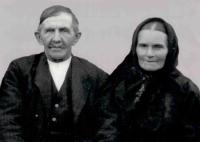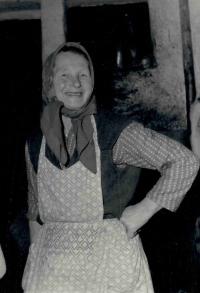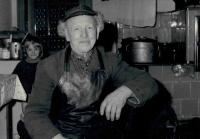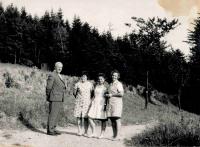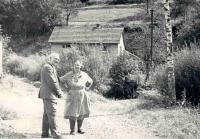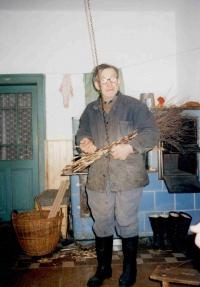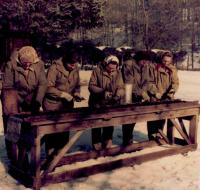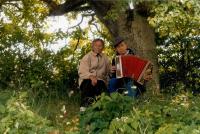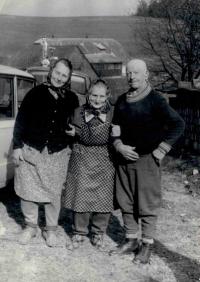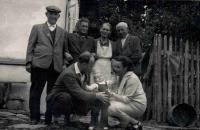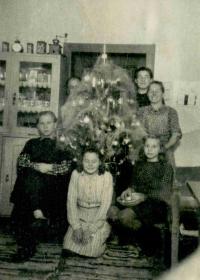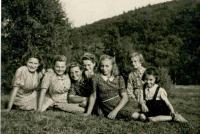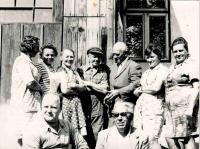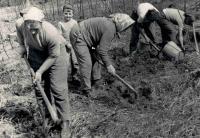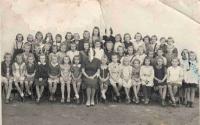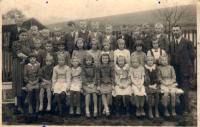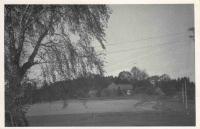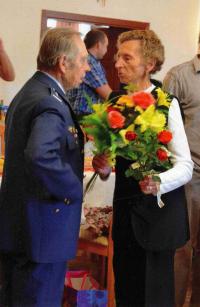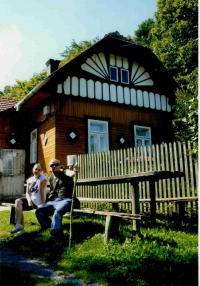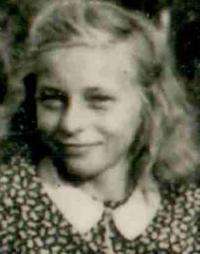Our every day depended on what happened

Download image
Věra Smilková, née Škrabánková, was born on 15 November 1932 in the forest settlement of V Hrabí, which is an administrative section of the Moravian Wallachian village of Ratiboř. She and her brothers and sister lived with their grandparents, who had a farm. Before Věra started elementary school in Liptál, her parents built a wooden cottage in the neighbouring forest settlement of V Háji, two kilometres away. Their house served as a meeting point for partisans during World War II, as her father, her brother Miroslav, and other relatives joined the resistance by supporting members of the 1st Czechoslovak Partisan Brigade of Jan Žižka. When the witness finished town school (upper primary school), she was briefly employed at the Liptál lumber company Lipta. When her sister Jarka got married, she quit her job to help her parents on the farm. She married at the age of 23, and she worked for the Forest Authority with her husband Jan Smilek until her retirement. They built a house in Semetín near Vsetín and raised two daughters.
